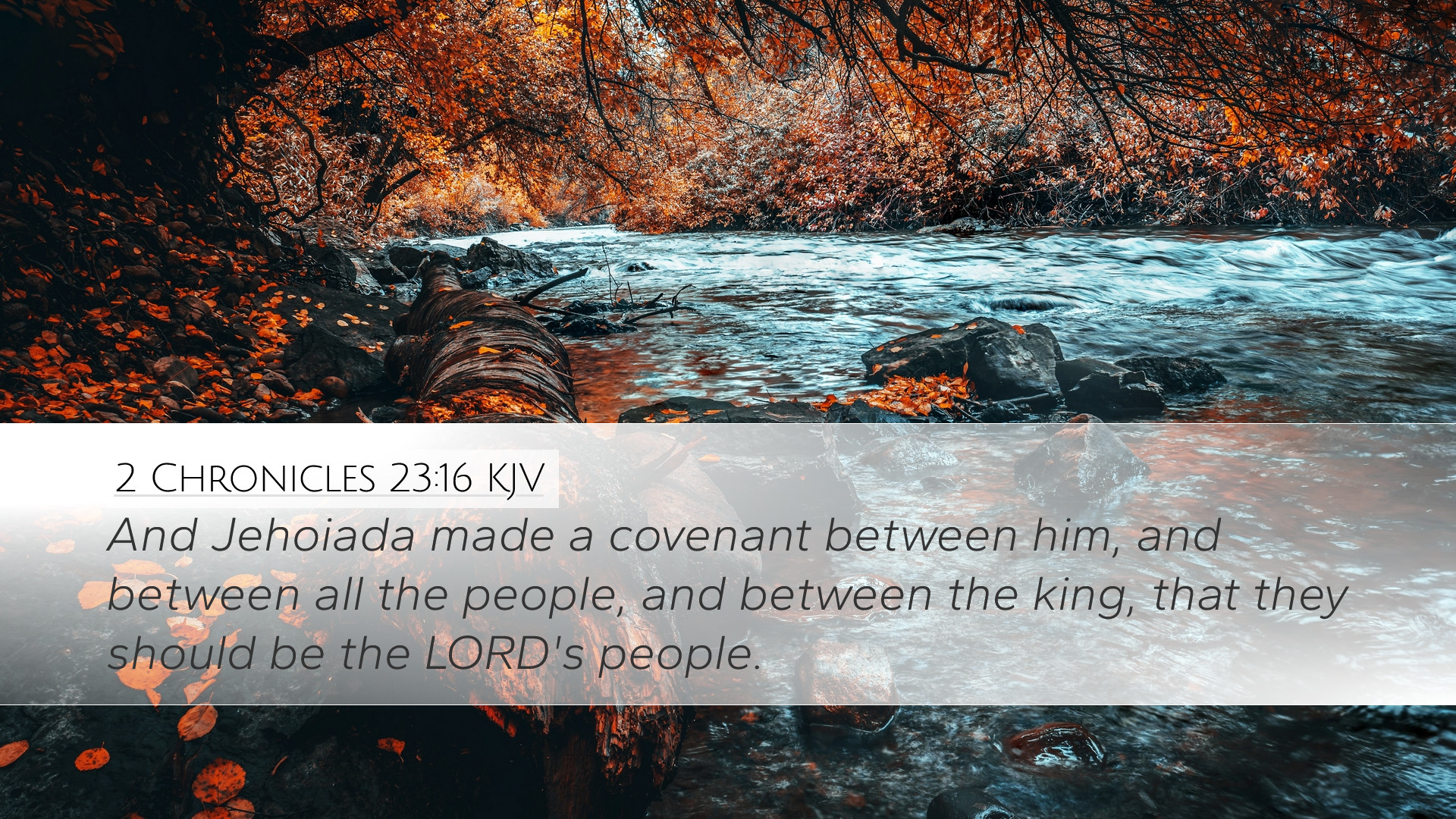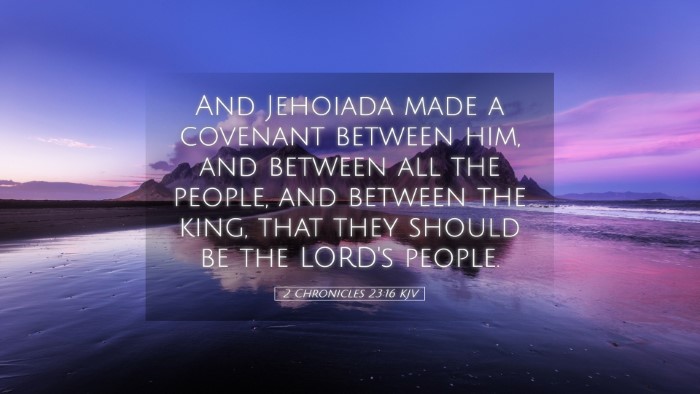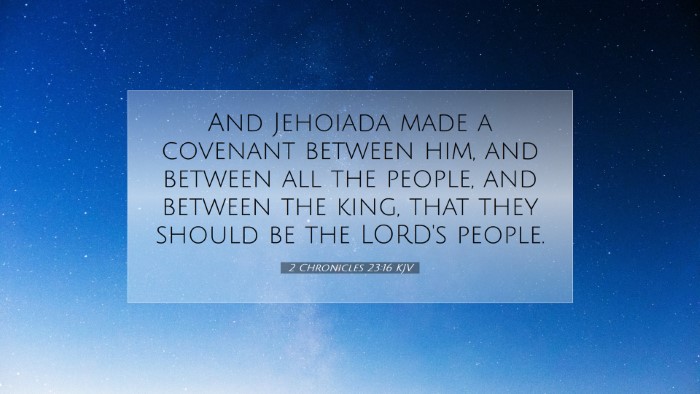Commentary on 2 Chronicles 23:16
Verse: "And Jehoiada made a covenant between him, and between all the people, and between the king, that they should be the Lord's people." (2 Chronicles 23:16)
Historical Context
The passage occurs during a pivotal moment in Judah's history, where Jehoiada, the high priest, plays a crucial role in restoring the monarchy under King Joash following the tyranny of Queen Athaliah. This covenant is not merely a political agreement but a profound spiritual commitment that reflects the people's desire to return to Yahweh.
Key Themes
- Covenant: The act of forming a covenant is significant, marking a solemn agreement between God, the king, and the people that denotes loyalty and faithfulness.
- The Lord's People: This phrase emphasizes the identity of the people as those who belong to God. The implications of this are extensive in terms of worship, duty, and moral obligation.
- Leadership and Renewal: Jehoiada's leadership demonstrates the importance of righteous guidance in restoring faith and order within the community.
Theological Insights
Commentators like Matthew Henry highlight that the covenant signifies a return to rightful worship and loyalty to God, emphasizing that the nation’s fate is intertwined with its allegiance to the Lord. This theme resonates throughout Scripture, where covenantal faithfulness leads to blessings while unfaithfulness results in judgment.
Albert Barnes notes that this covenant reflects the desire for reform and renewal among the people of Judah. It serves not just as a formality but as a commitment to a relationship with God grounded in obedience and faithfulness. The structure of this event points to a divine order that must be restored through the right leader.
Adam Clarke furthers this thought by discussing the social implications of the covenant, suggesting that the collective agreement strengthens the nation's identity and purpose under God. By affirming their status as "the Lord's people," the people acknowledge their dependence on divine protection and guidance.
Practical Applications
- Faithfulness in Leadership: Christian leaders today can draw lessons from Jehoiada’s commitment to righteousness. Leadership is crucial in guiding God's people towards a covenantal relationship with Him.
- Community Involvement: The collective nature of the covenant shows that faith is not merely an individual matter but a communal one, urging modern congregations to engage actively in their spiritual commitments.
- Commitment to God: Reflecting on this covenant calls for self-examination in our personal and communal faith practices. Are we, as the church, committed to being 'the Lord's people' in our beliefs and actions?
Historical Impact
The covenants of old, such as this one in 2 Chronicles, set a precedent that would echo through the subsequent history of Israel and Judah. They reflect a profound understanding of the relationship between God and His people, which is foundational to both the Old and New Testaments.
Their implications extend beyond mere words, as they shape the identity and mission of God's people throughout generations. Modern applications remind believers of their responsibilities and privileges as those who are called to be the Lord's people, reaffirming what it means to live in covenant with God.
Conclusion
In summary, 2 Chronicles 23:16 encapsulates the essence of covenant in the life of God’s people. Through the insight of renowned commentators, we arrive at a rich understanding of the theological, historical, and practical dimensions of this verse. For pastors, students, theologians, and scholars, the call remains vibrant: to recognize our identity in Christ as the Lord's people, bound in covenantal relationship, and to truly live out that calling in our communities and beyond.


